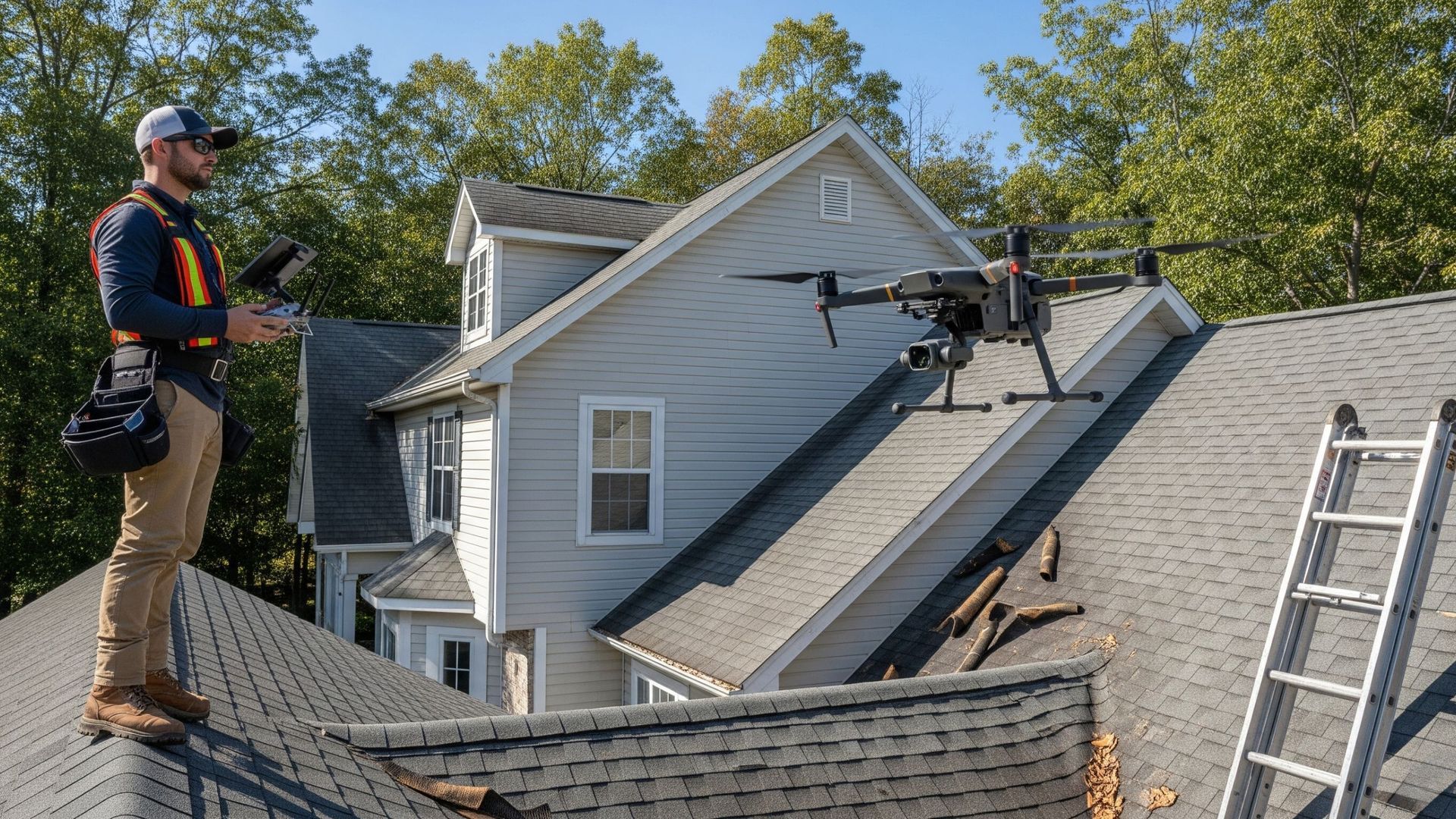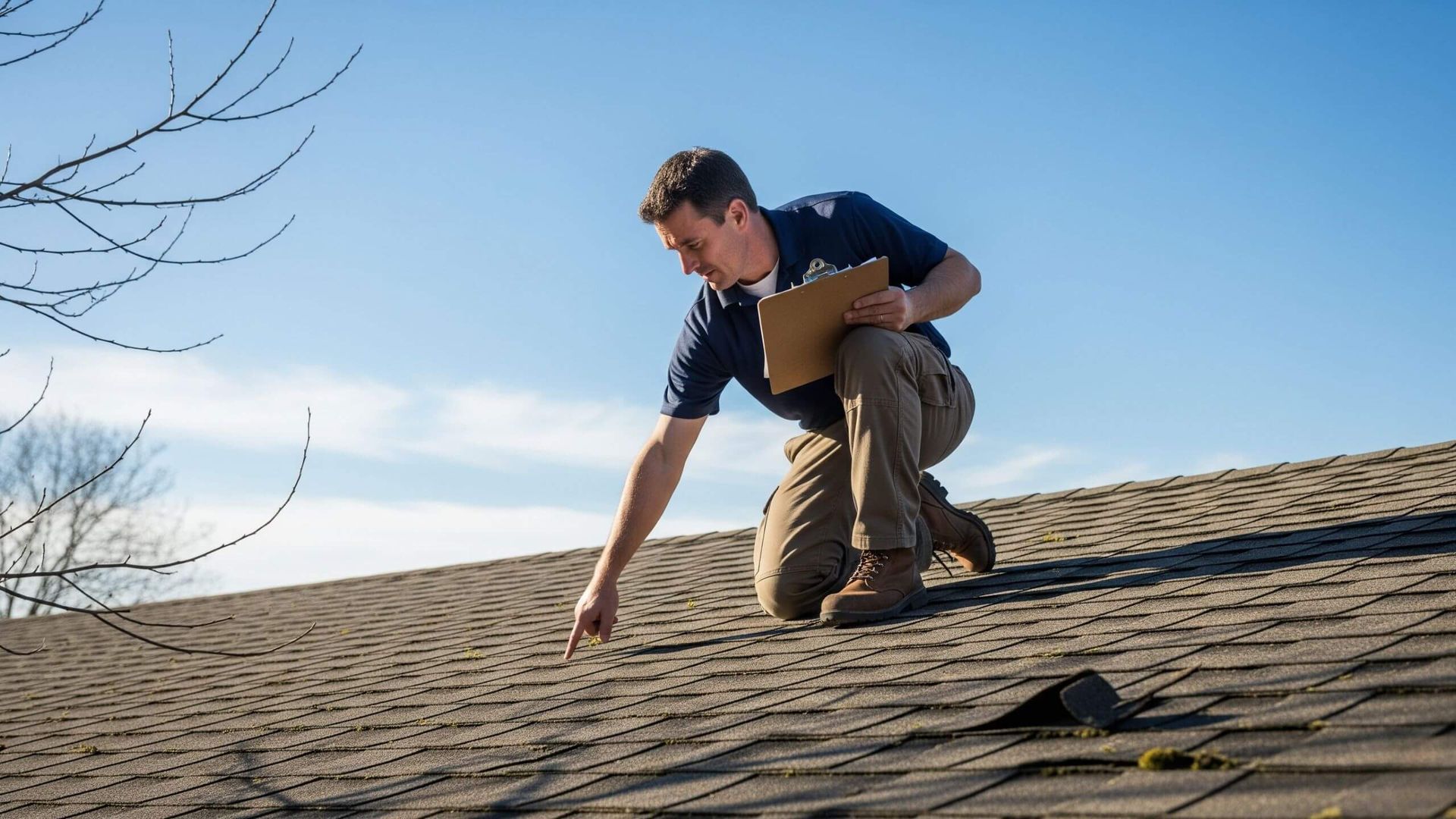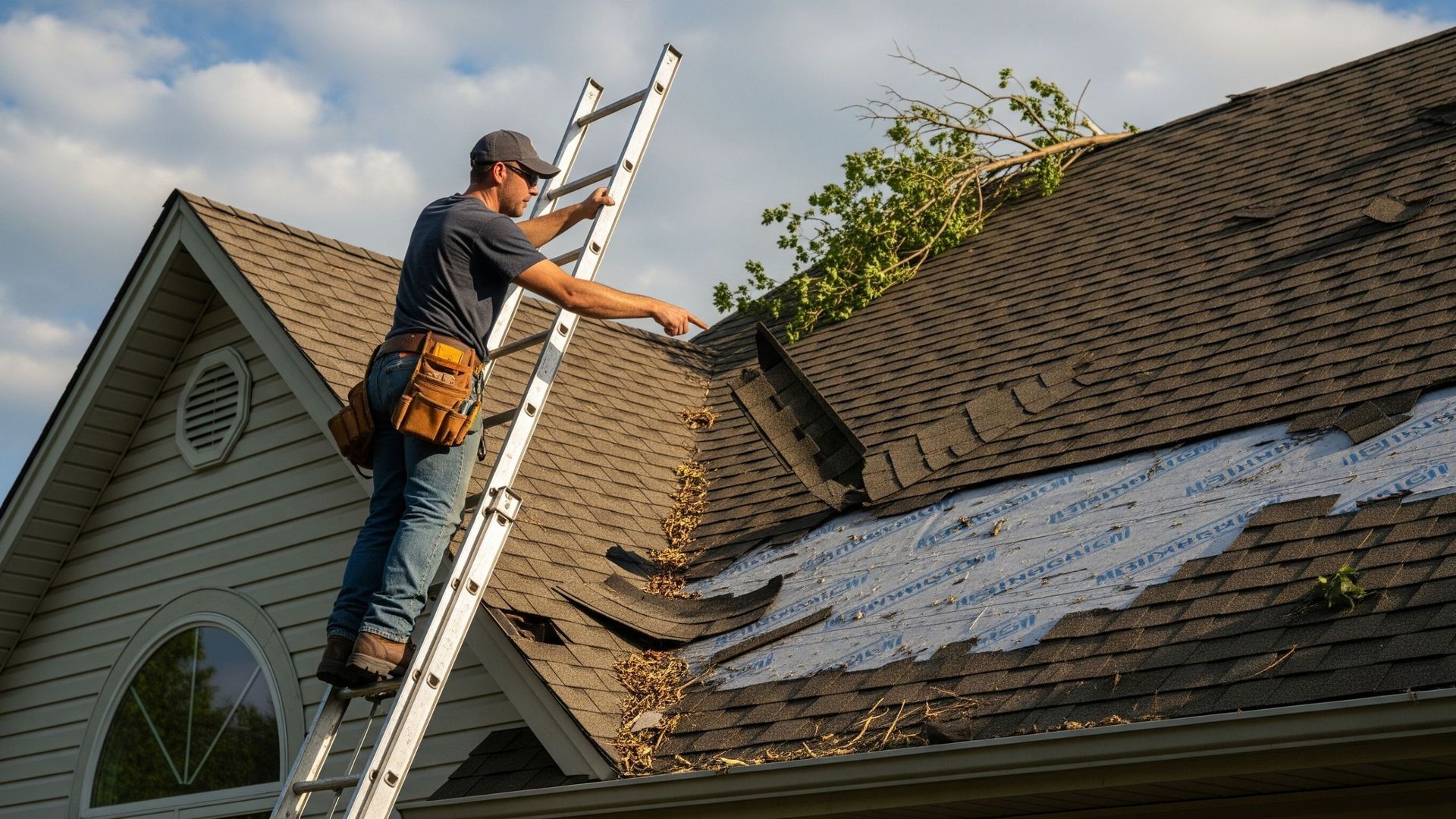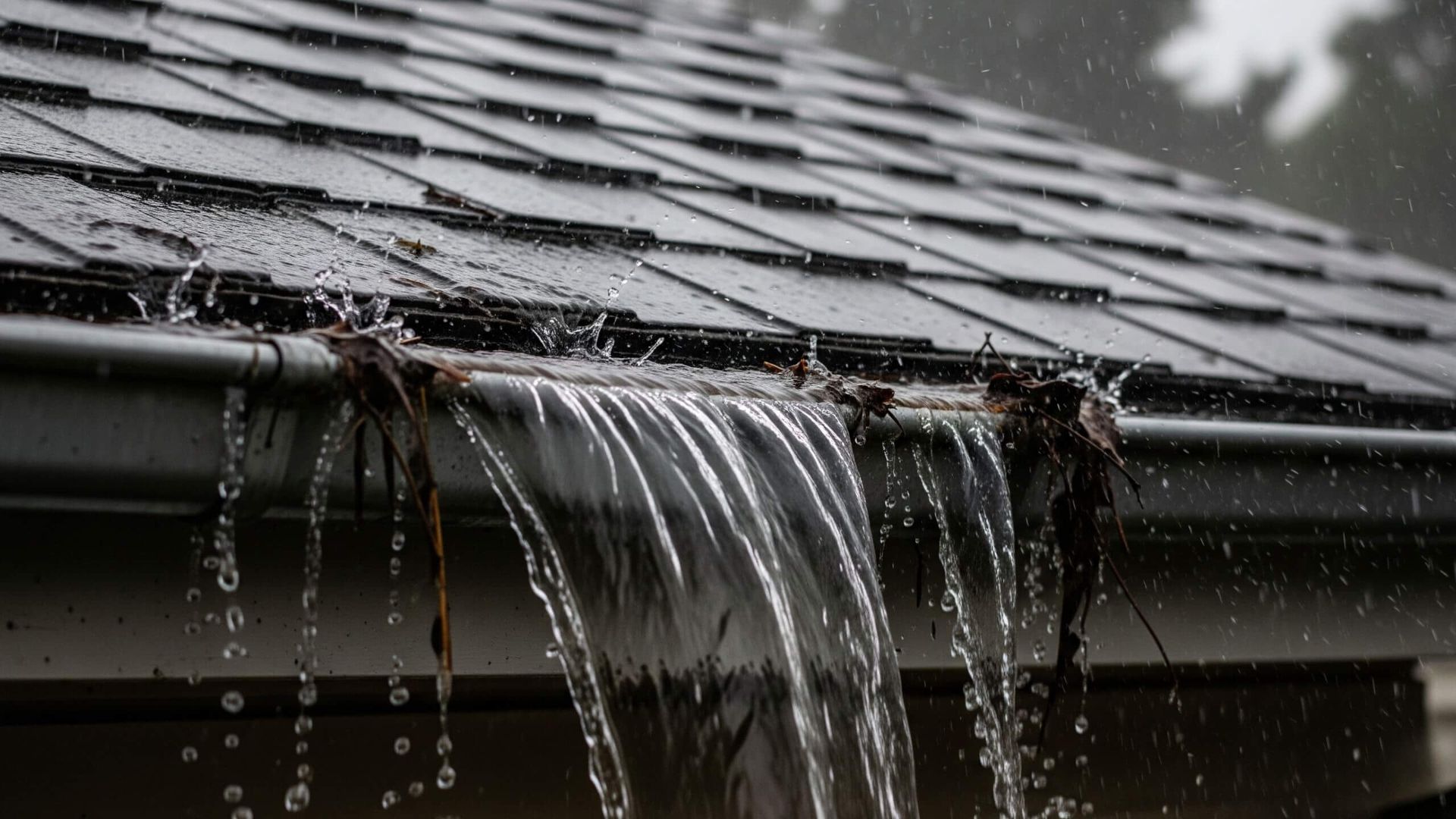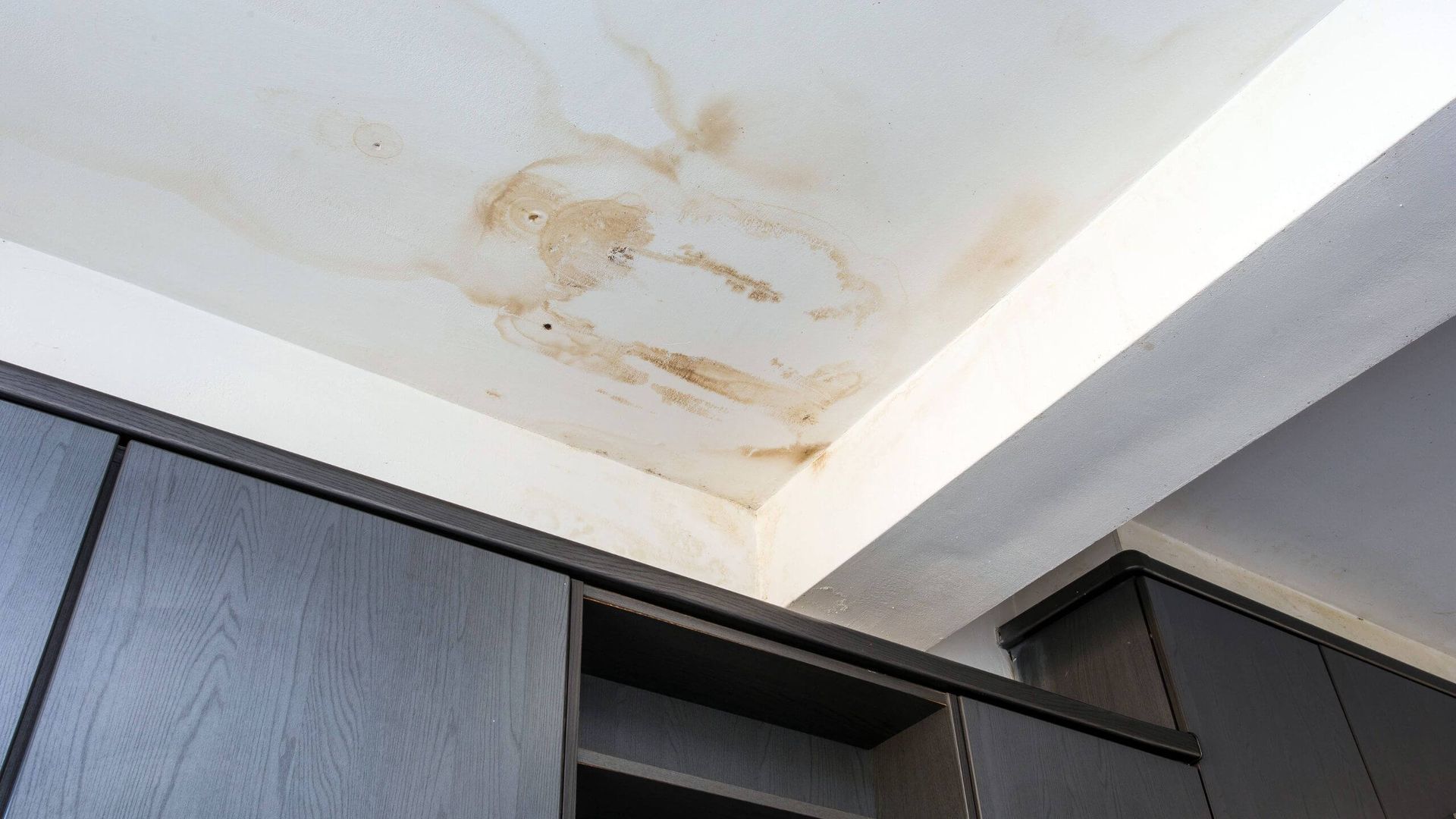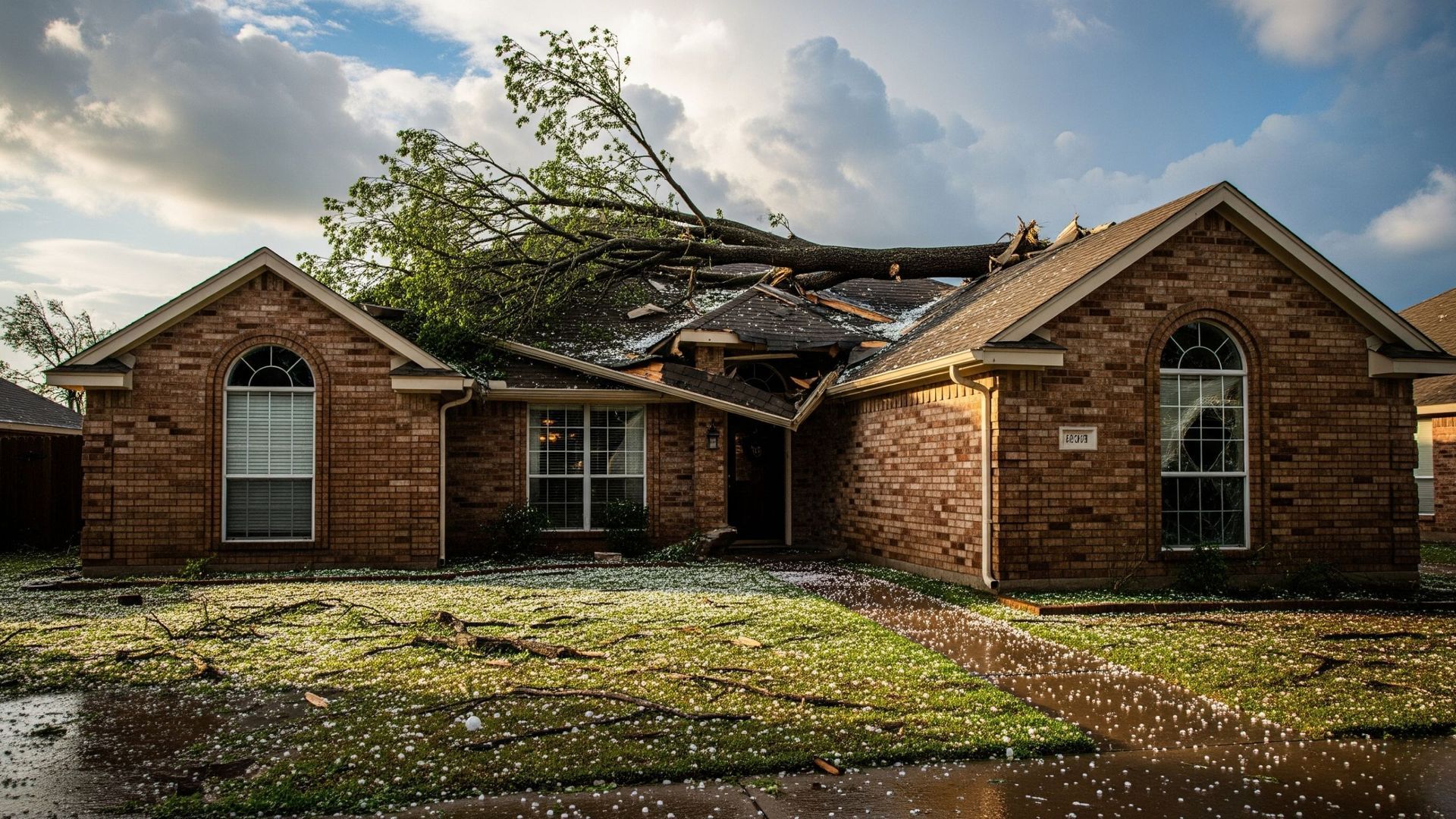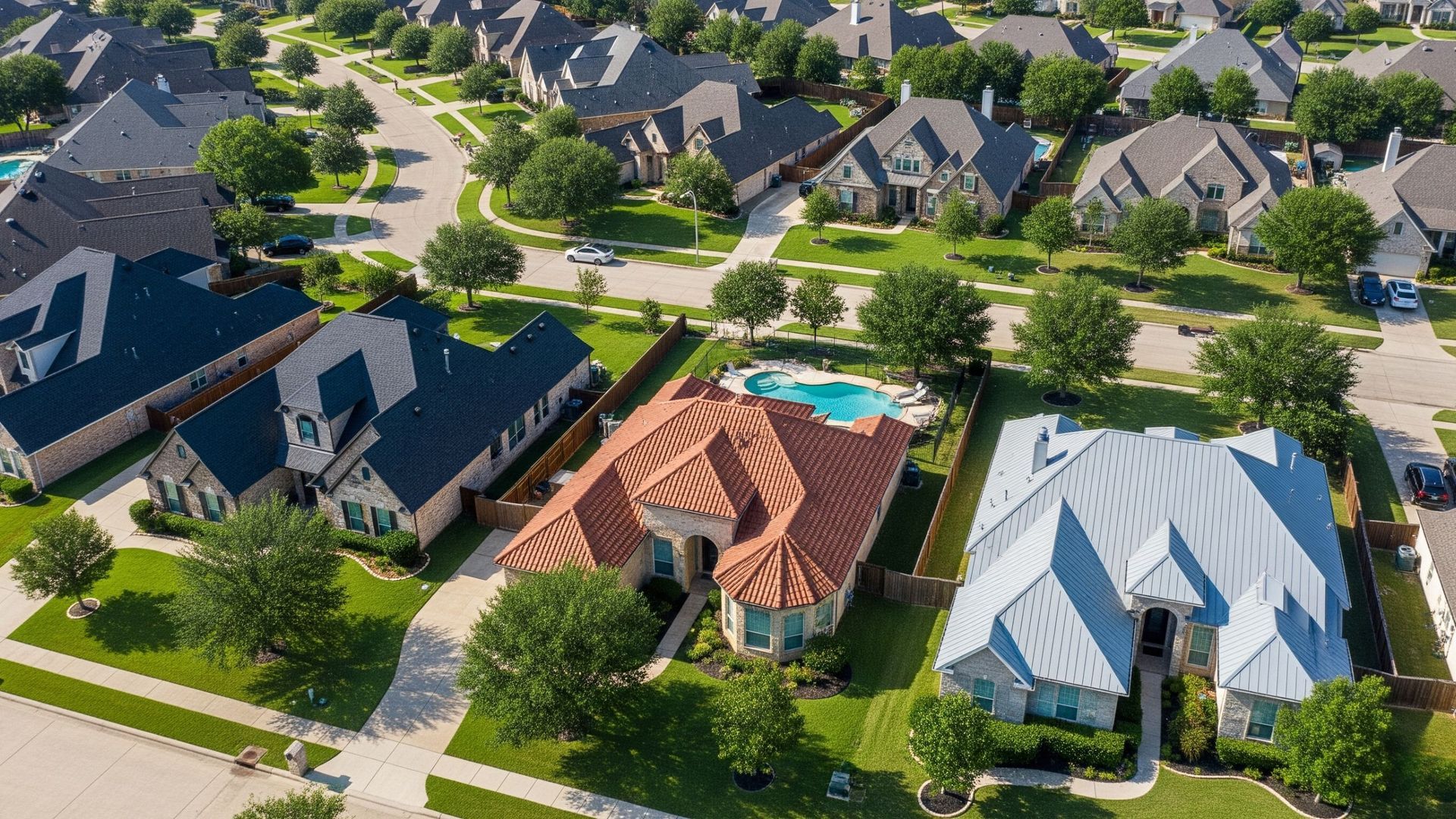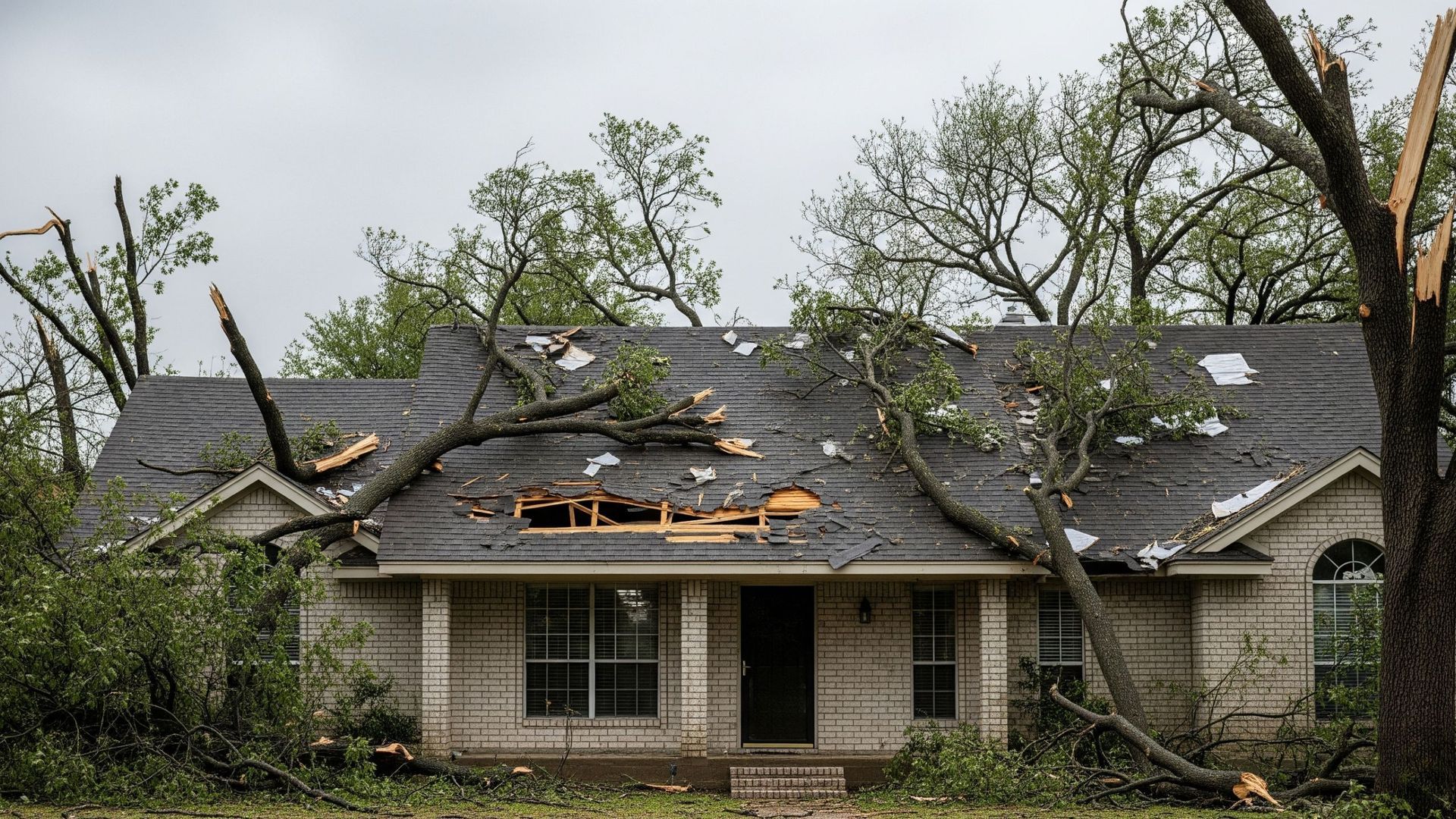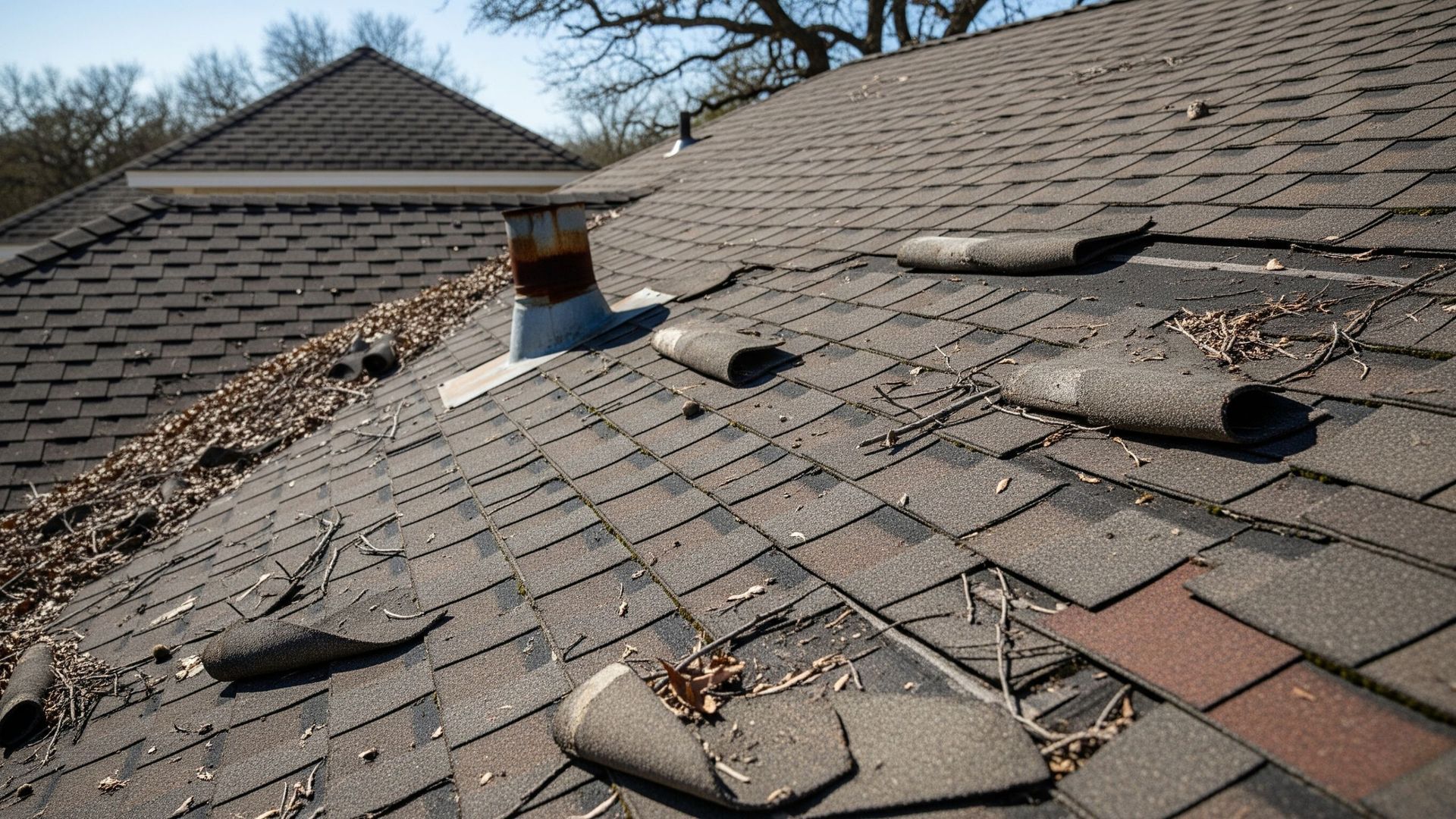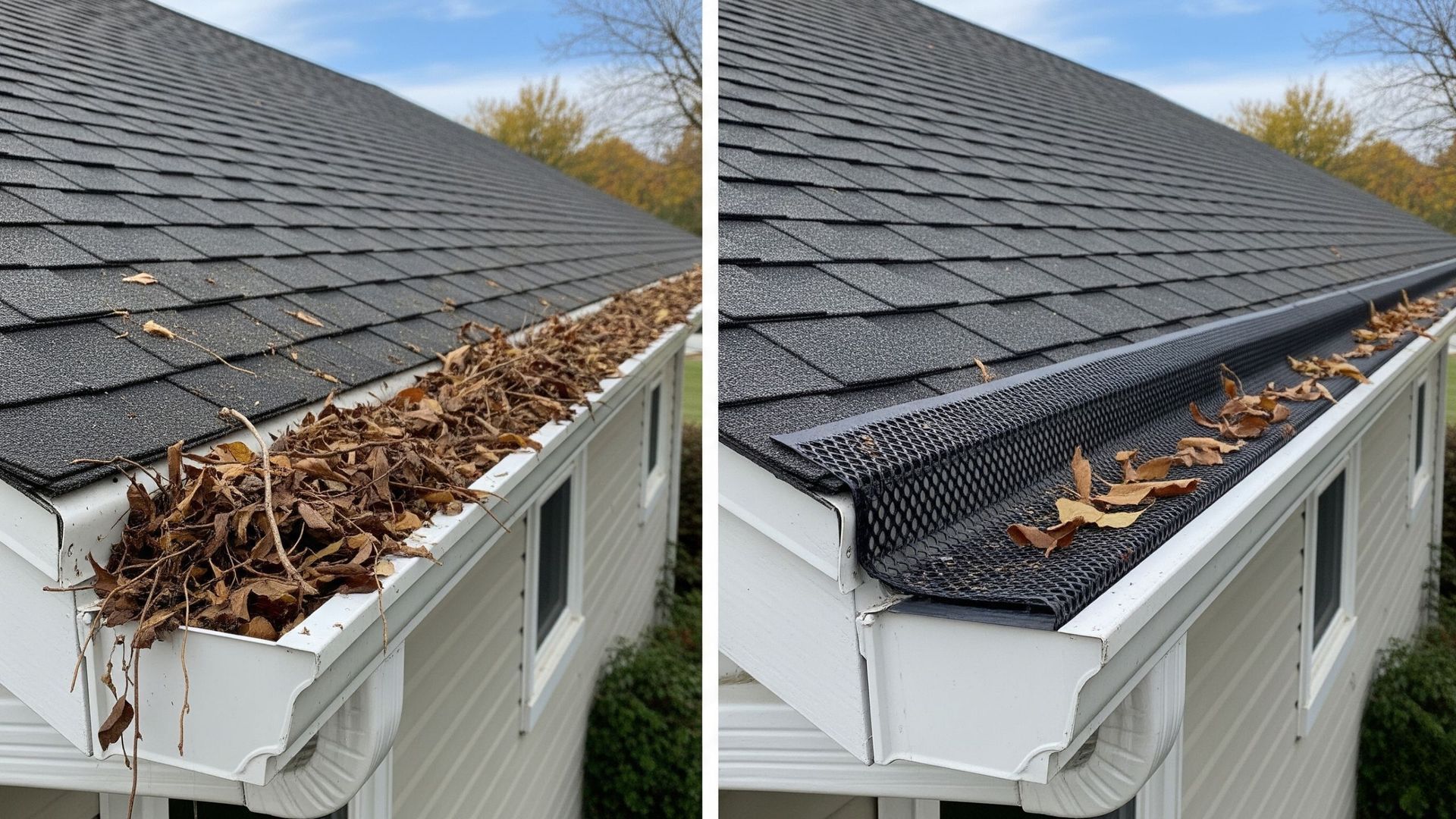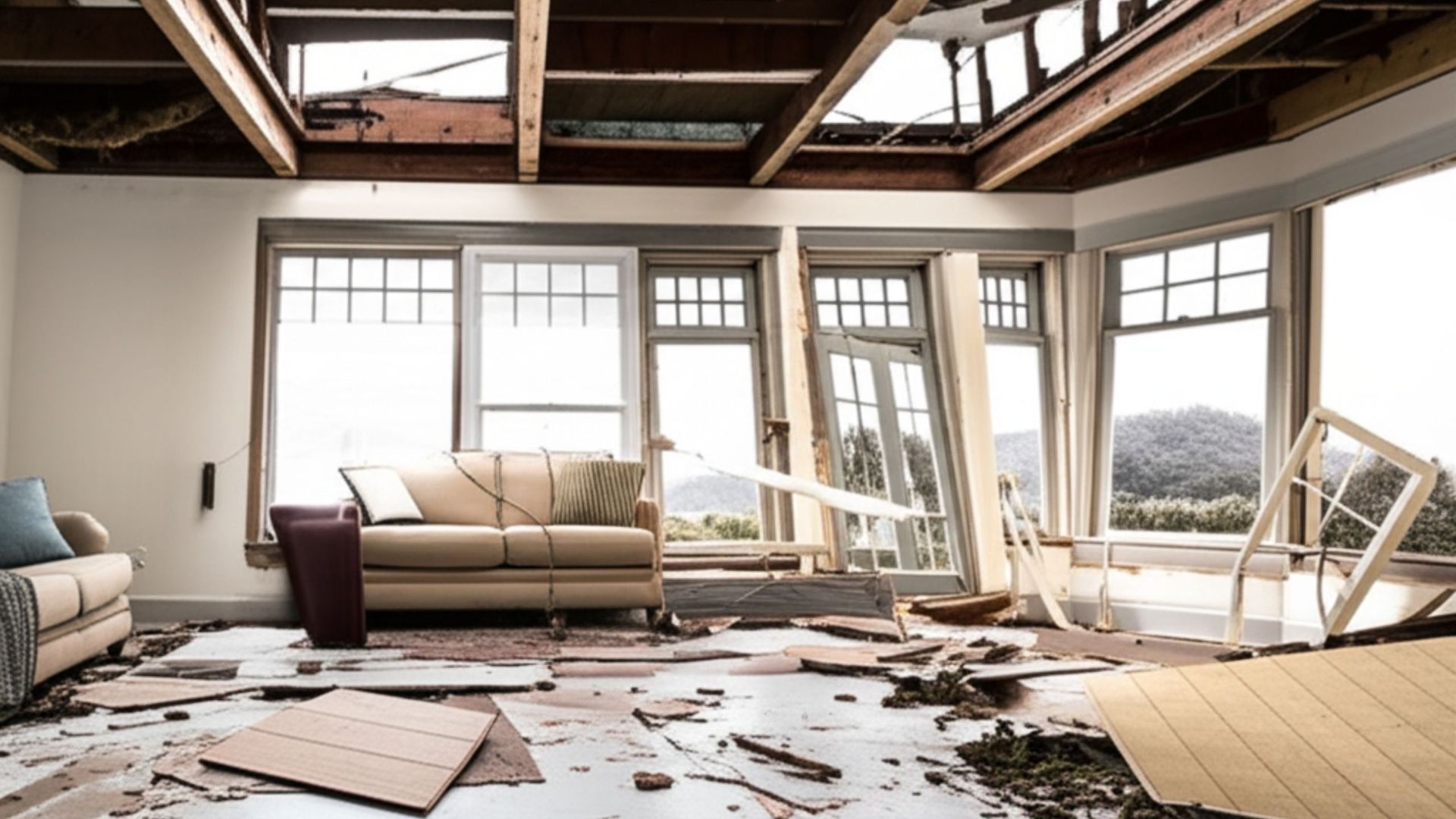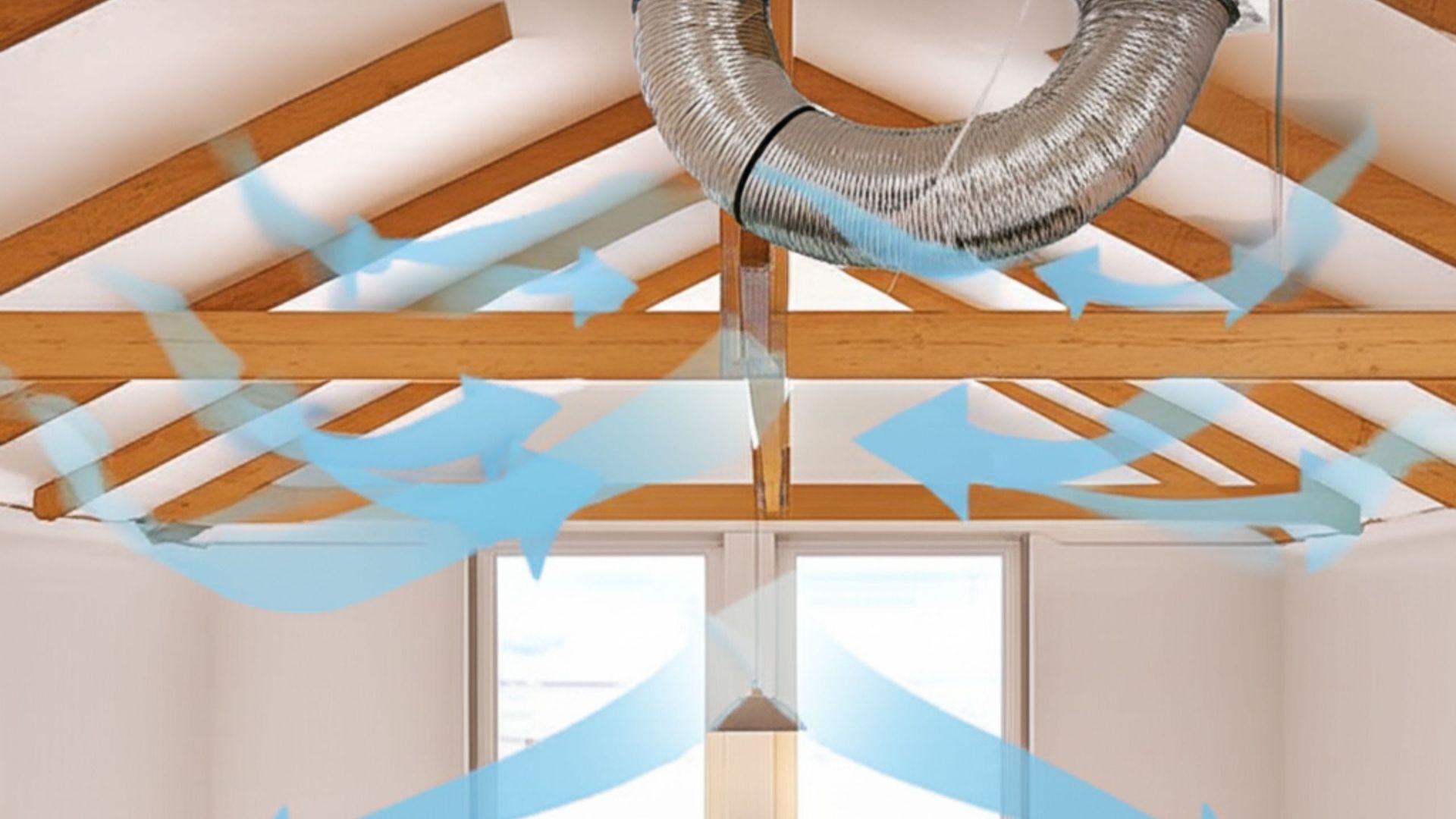Roof Repair vs. Roof Replacement: How to Decide
When you spot damage on your roof — a leak, missing shingles, or water stains — one big question follows: Can it be repaired, or is it time for a full replacement? For many Texas homeowners, especially those dealing with storm aftermath, choosing between roof repair and replacement isn’t always simple.
This guide will help you weigh the signs, consider long-term costs, and make the smartest decision for your home’s protection and value.
When Roof Repair Makes Sense
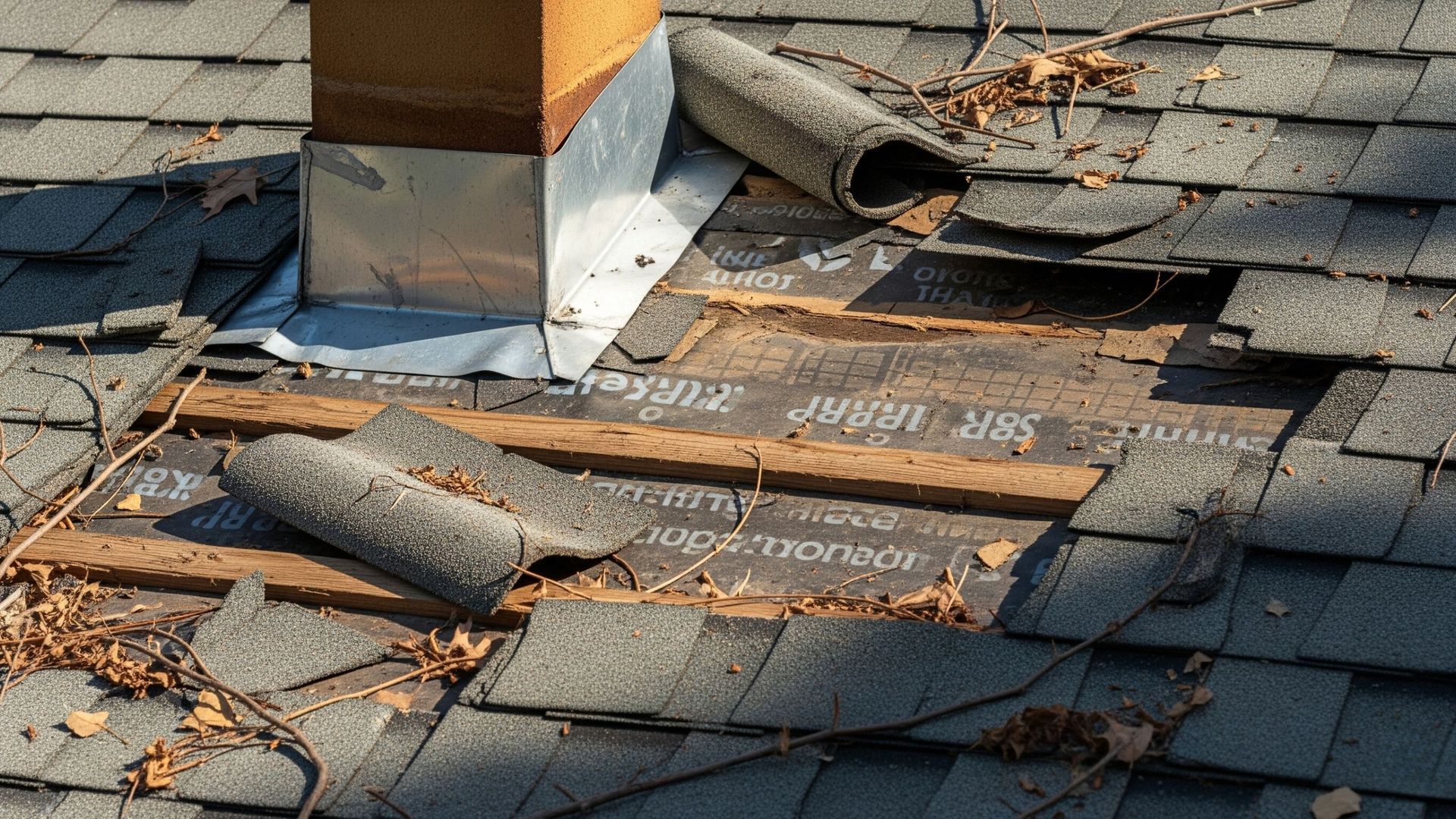
Roof repair is often the right choice if:
- Damage is minor or isolated: A few missing shingles or a small leak can usually be fixed without a full replacement.
- Your roof is under 10 years old: If your roof still has most of its life left, repairing small areas is cost-effective.
- There’s been no structural damage: If the decking is solid and leaks haven’t spread, repair can stop further damage.
- You’re preparing to sell: A repair can help you pass inspection and buy time if you're not planning to stay long-term.
Repairs are usually faster, cheaper, and ideal for newer or well-maintained roofs.
When It’s Time for a Full Roof Replacement
A roof replacement may be the better choice if:
- The damage is widespread: Multiple leaks, curling shingles, and granule loss across large sections signal deeper problems.
Your roof is 15–25+ years old: Older roofs wear down even without obvious damage — and one problem often leads to another.
- You’ve had several repairs already: If you’ve patched it up multiple times, replacing may be more cost-effective long term.
- Storms caused structural issues: Fallen trees, large hail, or high winds can cause damage below the surface that repairs won’t fix.
A new roof gives you fresh materials, a stronger structure, and peace of mind — especially going into storm season.
Cost Comparison: Repair vs. Replace
Roof Repairs: Typically range from $300 to $2,000, depending on the issue and material.
- Roof Replacements: Start around $8,000 to $20,000 for asphalt shingles, with higher prices for metal or premium materials.
- While repairs are cheaper upfront, recurring issues can add up. A full replacement may be the smarter investment, especially if your roof is nearing the end of its life.
How to Decide: Key Questions to Ask

Ask yourself:
- How old is my current roof?
- Have I repaired it more than once in the last five years?
- Is the damage localized or spread across multiple areas?
- Am I staying in this house long-term?
When in doubt, schedule a professional roof inspection. A trained eye can spot hidden issues, assess the full scope of damage, and give you honest recommendations.
Final Thought
In Texas, roofs take a beating from sun, rain, and storms. Knowing when to repair or replace is key to protecting your home, your budget, and your family.
